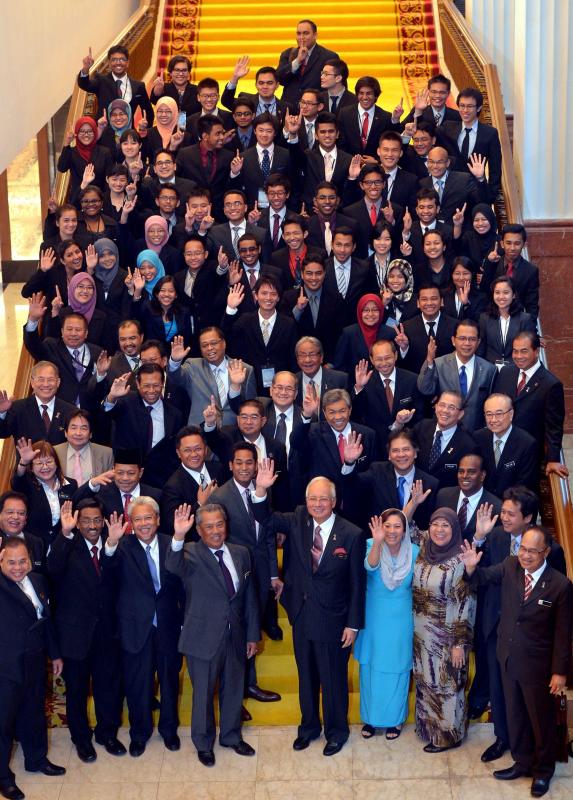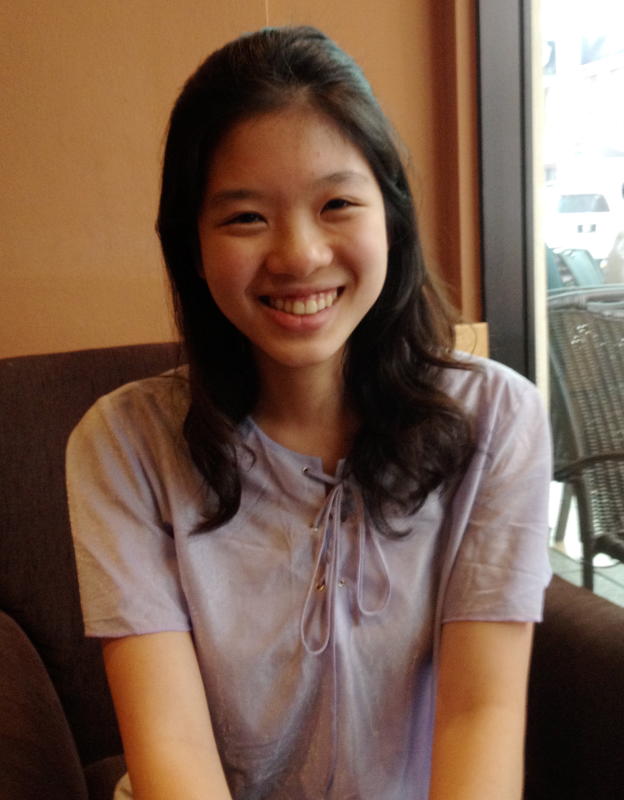By CHRISTINE CHEAH
alltherage@thestar.com.my
Tan Hooi Choo has been schooling in Singapore since she was seven. Yet when asked “where is home to you?” she replied without hesitation: “Malaysia.”
The 20-year-old Johorean is one of many Malaysian students abroad who hold their motherland close to heart and are concerned about the nation’s well-being.
“I always keep myself updated through our news portals and helped to organise the Malaysia Forum, (a student event) where young students abroad discuss about current issues,” said the Ngee Ann Polytechnic (Singapore) aerospace electronics undergraduate.
Likening Malaysia to a birth parent and Singapore to a foster parent, she added that it is all about making Malaysia a better place.

Tan Hooi Choo loves Malaysia for its ‘ren qing wei’ which meant the kind and friendly feeling among the people.
“I have faith that we, the next generation, can bring Malaysia to the next level,” said Tan.
Malaysia Forum is just one of many policy and politics-oriented youth initiatives that have mushroomed in recent years. Many of these initiatives are not just attended by young people – they were actually started by them.
Getting involved
Taylor’s College student Eleasha Chew, 19, said her participation in the 2013 Malaysia Public Policy Competition (MPPC) actually made her understand Malaysia better.
Chew was part of the competition’s winning team, Power Pundits, and she said her team members put forth an argument on how to empower women in the workforce to address the braindrain issue – the theme of the competition this year.
“For the first time I saw how beautiful the Malaysian flag is because from my experience in MPPC, it made me realise that Malaysia is worth fighting for.
“There is so much hope and there are so many people who are willing to join in the fight to make Malaysia better,” she added.
Just like the Malaysia Forum, MPPC was initiated due to the interest of young Malaysians in public policy. The event two weeks ago was its third instalment.
Malaysian students abroad have also been forming discussion groups of their own, such as Universiti Terbuka Anak Muda (UTAM) to discuss key issues affecting the nation.
UTAM is an online platform where thousands of Malaysian students from around the globe attend kuliah mingguan (weekly lectures) and book review sessions through Ustream, an online video streaming website.
The topics presented by the speakers mostly focus on Malaysian social issues, politics, economics and philosophies.Post-lecture, the students have further discussions on UTAM’s Facebook page.
University of Michigan undergraduate Siti Fatimah Zaini, 20, is an active UTAM participant and has been using the platform to spur intellectual discussions on critical issues.
Out of the virtual world, she added that she would further discuss these topics with her Malaysian peers over tea in the United States.
“UTAM is a platform for us to voice out our ideas and expand our knowledge. It is the channel for youths to learn the ‘real’ stuff,” said Siti Fatimah.
The GE spark
With this year’s general election (GE13) being the talk of the town in May, interest in the political landscape and policies of the country among the young people has increased significantly.
Hoping to sustain this interest, the government has been trying to engage the youths through new initiatives like the Perdana Fellows Programme and 1Malaysia For Youth (iM4U).
Youth and Sports Minister Khairy Jamaluddin agreed that GE13 has indeed increased the awareness among young people in local politics, and added that a youth parliament will be the next major rollout from his ministry.
“Young people can contest to become youth parliament members where they will be given the opportunity to pass resolutions and suggest public policies to the government,” said Khairy of the programme, which will be launched next year.
DAP national publicity secretary Tony Pua also said the number of applications DAP received this year for their internship programme had increased by 60%.
“The increasing number was most probably due to the post-election events, and we are seeing more local students applying this year,” said the Petaling Jaya Utara MP.
Low Jin Wu, 22, was one of those who could have landed an internship with Opposition, but decided to apply for the Perdana Fellows Programme instead, for which he was accepted.
Under the programme, launched by Prime Minister Datuk Seri Najib Tun Razak earlier this year, 70 selected fellows such as Low will get the chance to work as aides with cabinet ministers over the next few months.
“GE13 sparked my interest in politics. Almost everyone where I live (in Cheras, Kuala Lumpur) supports the Opposition but I wanted to have a clearer picture of the federal government and that’s why I applied to be a Perdana fellow,” said Low who is now an aide to the Prime Minister.

Prime Minister Datuk Seri Najib Tun Razak,his deputy Tan Sri Muhyiddin Yassin and some cabinet ministers posing with participants of the Perdana Fellows Programme in parliament.
To share his thoughts with other friends on GE13, Ashman Ezani Amirudin teamed up with his friends to set up a branch of Buku Jalanan in Perth, Australia, just before the elections.
He described this initiative as a “library” among people where books are shared and discussions of current affairs are spurred from these gatherings.
“After the discussions we had, I realised that we were learning a lot from the topics we were discussing, and how important economic and political stability is in sustaining a country,” he said.
This paradigm shift in the youth’s mindset towards politics has started since the 1980s, said former Malaysian Youth Council president and veteran UMNO politician Datuk Saifuddin Abdullah.
Saifuddin himself has been involved in politics since his days as a student leader at the Malay College Kuala Kangsar.
“What happened in the last two general elections is the result of Barisan not listening to the young people’s language,” said Saifuddin. Saifuddin further explained that the 2008 general elections was a wake-up call for the government and that they are gradually learning to communicate with the youth.
“I find it encouraging that youth are more interested in policies because it acts like a mirror for us (the ruling party) to improve ourselves, and this mirror only comes once in five years,” he said. “And though the young people are cynical towards politics, they have faith in democracy – and they love their country.”



Tell us what you think!